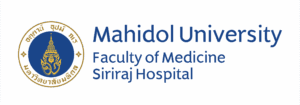Siriraj-BIOTEC researcher has successfully developed a dengue vaccine
On November 29, 2013, Dr. Boonpote Siridechadilok, researcher of Medical Biotechnology Laboratory BIOTEC who is in charge of Dengue division, department of research and development revealed in the conference press about viral development on dengue vaccine. This project was granted 100,000 USD for 18 months of research support by Grand Challenges Canada.
Dengue Hemorrhagic Fever (DHF) is a mosquito-borne tropical disease that is among the most prevalent health challenges worldwide. Although vaccine development has proven effective to certain degrees, there are 400 million DHF infected people each year, with another 3 billion people prone to this infection.
According to Dr. Boonpote, “Understanding the comprehensive details of the dengue virus and its regulation will be the most crucial essence in developing a vaccine for DHF protection.”
In the present time, most of the vaccine developers focus on the live attenuated vaccine approach screening/creation—where viral mutation will be screened in the culture, or engineered.
According to Dr. Boonpote, “The original viral engineering has less genetic diversity than developed laboratory viral engineering. The developed laboratory viral engineering broadens the genetic diversity up to 10,000 times than that of the original. Moreover, this technique can analyze with high efficiency to investigate the mutation.”
Grand Challenges Canada funding is supported by the Canadian government for projects with high impacts on health sciences, technology, social and business innovations in developing countries. This funding objective is to encourage direct practices and applications of research for the well-being of the general population. In addition, there are 3 more awarded researchers namely: Dr. Surakameth Mahasirimongkol, TB/HIV Research Foundation (THRF), Assistant Professor Dr. Thanat Chookajorn, and Dr.Yoel Lubell, Mahidol University.





